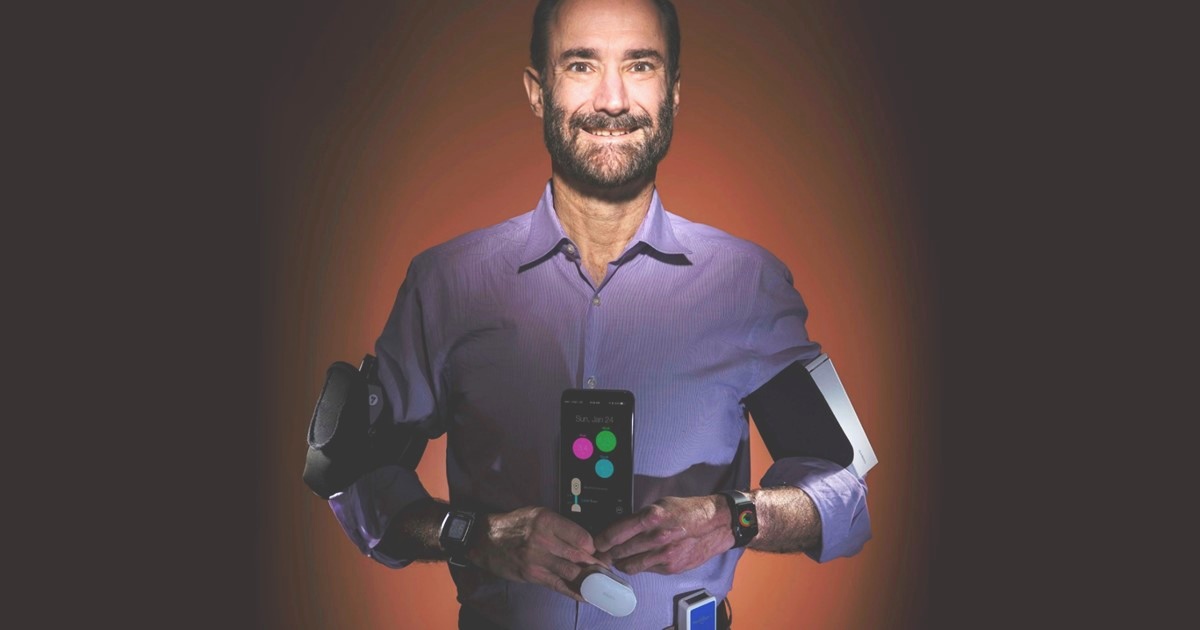RadTarge
Built for the Future. Study Shows Wearable Devices Can Help Detect Illness Early
Posted on by Dr. Francis Collins

Caption: Stanford University’s Michael Snyder displays some of his wearable devices.
Credit: Steve Fisch/Stanford School of Medicine
Millions of Americans now head out the door each day wearing devices that count their steps, check their heart rates, and help them stay fit in general. But with further research, these “wearables” could also play an important role in the early detection of serious medical conditions. In partnership with health-care professionals, people may well use the next generation of wearables to monitor vital signs, blood oxygen levels, and a wide variety of other measures of personal health, allowing them to see in real time when something isn’t normal and, if unusual enough, to have it checked out right away.
In the latest issue of the journal PLoS Biology [1], an NIH-supported study offers an exciting glimpse of this future. Wearing a commercially available smartwatch over many months, more than 40 adults produced a continuous daily stream of accurate personal health data that researchers could access and monitor. When combined with standard laboratory blood tests, these data—totaling more than 250,000 bodily measurements a day per person—can detect early infections through changes in heart rate.
